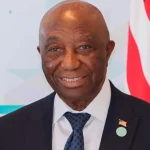Nigeria’s cryptocurrency story has long been defined by fear, fear of scams, capital flight, and loss of control. In 2021, that fear led to a sweeping ban that forced the industry underground. Four years later, the country is trying to design its way out of that paranoia through a new Virtual Asset Law.
Last week, the House of Representatives’ ad hoc Committee on the Economic, Regulatory, and Security Implications of Cryptocurrency Adoption met with leaders in the crypto industry to discuss the proposed law.
Senator Ihenyen, Executive Chair of the Virtual Assets Service Providers Association of Nigeria (VASPA), urged lawmakers to put an end to regulatory fear. “Nigeria needs a path to clarity,” he said, calling for “a unified and comprehensive Virtual Assets Act for responsible innovation and adoption.”
The 27-member House Committee, which draws members from capital markets, financial services, and cybersecurity committees, has begun listening to stakeholders. According to Ihenyen, “Lawmakers wanted to understand what operators feel. It wasn’t box-ticking; it was real engagement.”
Regulatory Confusion and Institutional Mistrust
Despite progress made with the Investment and Securities Act (2025), which officially recognised digital assets as securities, the Central Bank of Nigeria (CBN) still treats crypto with caution.
“The CBN has not made a full mindset shift from 2021,” Ihenyen said. “Its overly cautious approach, though well-intentioned, doesn’t inspire confidence.”
Even after the 2023 CBN guidelines lifted the ban, the central bank maintained distance from crypto operators, choosing instead to communicate only with licensed financial institutions. Ihenyen criticised this indirect approach: “Trying to shave the hair of virtual asset service providers in their absence will never build the confidence we need.”
The situation has created a bureaucratic limbo, crypto is legal but distrusted, recognised but restricted. For startups already operating on thin margins, this uncertainty has been stifling.
Adding to the challenge, the CBN, SEC, and National Security Adviser (NSA) often pull in different directions. The SEC classifies all tokens as securities, the CBN views them as speculative threats, while the NSA still enforces a blanket ban on major crypto websites to “protect the naira.”
Ihenyen called the policy “unsustainable.” He argued that blanket blacklisting contradicts international standards such as the Money Laundering Act, Terrorism Act, and FATF guidelines, advocating for monitoring and supervision instead.
Key Recommendations for the Virtual Asset Law
VASPA’s submission to the National Assembly outlined several recommendations for the Virtual Asset Law of Nigeria, aimed at replacing confusion with clarity and encouraging innovation:
- Unified Regulation: Eliminate overlapping mandates between the CBN, SEC, and NSA by clearly defining responsibilities.
- Risk-Based Classification: Differentiate between utility tokens, payment tokens, and security tokens to avoid a one-size-fits-all approach.
- Tiered Licensing: Allow startups easier entry while applying stricter requirements to higher-risk operators.
- Legal Clarity for P2P Transactions: Recognise peer-to-peer trading as a legitimate, regulated activity rather than a loophole.
If enacted, the law could transform crypto from a tolerated nuisance into an integrated part of Nigeria’s financial system, creating clear compliance paths while protecting consumers and attracting investors.
Toward Responsible Regulation
Ihenyen emphasised that VASPA is not calling for deregulation but for intelligent, dialogue-driven oversight. “Without cooperation, Nigeria will keep repeating the same mistakes, fear leading to bans, bans driving activity underground, and underground activity fuelling more fear,” he warned.
For the first time in years, Nigeria’s crypto debate appears to have a sense of direction. Both chambers of the National Assembly are aligned on the need for a comprehensive framework.
While progress may be slow, the House Committee is expected to continue stakeholder consultations, draft the legislative text, and work through committee review, inter-agency harmonisation, and final passage.
If successful, Nigeria’s Virtual Asset Law could finally bring order, confidence, and innovation to one of Africa’s most dynamic but misunderstood digital economies.














